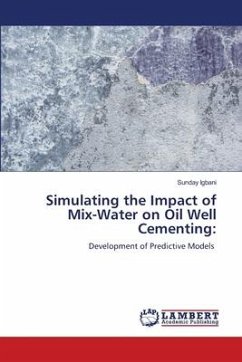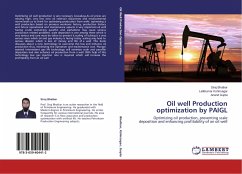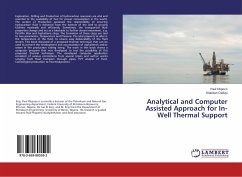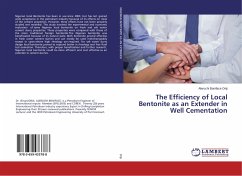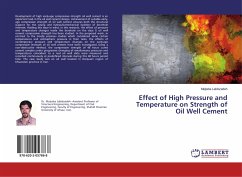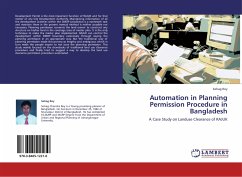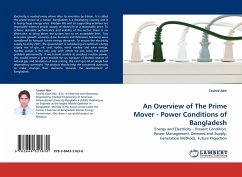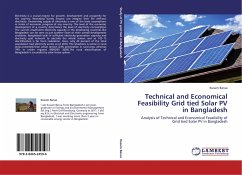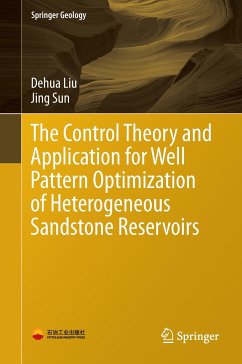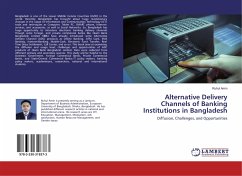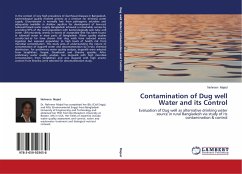
Contamination of Dug well Water and its Control
Evaluation of Dug well as alternative drinking water source in rural Bangladesh via study of its contamination & control
Versandkostenfrei!
Versandfertig in 6-10 Tagen
41,99 €
inkl. MwSt.

PAYBACK Punkte
21 °P sammeln!
In the context of very high prevalence of diarrhoeal diseases in Bangladesh, bacteriological quality received priority as a criterion for drinking water supply. Groundwater is normally free from pathogenic microbes and adequately available in shallow aquifers for development of low-cost tubewell based water supply. Bangladesh achieved a remarkable success by providing 97% of the rural population with bacteriologically safe tube well water. Unfortunately, arsenic in excess of acceptable limit has been found in tubewell water in most parts of Bangladesh. Water quality studies conducted so far ha...
In the context of very high prevalence of diarrhoeal diseases in Bangladesh, bacteriological quality received priority as a criterion for drinking water supply. Groundwater is normally free from pathogenic microbes and adequately available in shallow aquifers for development of low-cost tubewell based water supply. Bangladesh achieved a remarkable success by providing 97% of the rural population with bacteriologically safe tube well water. Unfortunately, arsenic in excess of acceptable limit has been found in tubewell water in most parts of Bangladesh. Water quality studies conducted so far have shown that dug wells have reduced arsenic ingestion but exposed population to high levels of health risk from microbial contamination. This study aims at understanding the nature of contamination of dugwell water and decontamination by in-situ chemical disinfection. For preliminary water quality analysis, dugwells were selected from Sirajdikhan, Singair, Daudkandi and Sharsha upazilas. After preliminary water quality analysis, two dugwells with high microbial contamination from Sirajdikhan and one dugwell with high arsenic content from Sharsha were selected for decontamination study.



